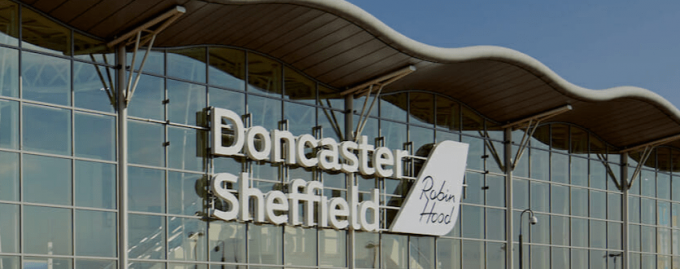Loadstar Podcast | July 2024 | Politics shaping global supply chains as the UK votes
In this episode of The Loadstar Podcast, we explore the complex interplay between politics and ...
TFII: SOLID AS USUALMAERSK: WEAKENINGF: FALLING OFF A CLIFFAAPL: 'BOTTLENECK IN MAINLAND CHINA'AAPL: CHINA TRENDSDHL: GROWTH CAPEXR: ANOTHER SOLID DELIVERYMFT: HERE COMES THE FALLDSV: LOOK AT SCHENKER PERFORMANCEUPS: A WAVE OF DOWNGRADES DSV: BARGAIN BINKNX: EARNINGS OUTODFL: RISING AND FALLING AND THEN RISING
TFII: SOLID AS USUALMAERSK: WEAKENINGF: FALLING OFF A CLIFFAAPL: 'BOTTLENECK IN MAINLAND CHINA'AAPL: CHINA TRENDSDHL: GROWTH CAPEXR: ANOTHER SOLID DELIVERYMFT: HERE COMES THE FALLDSV: LOOK AT SCHENKER PERFORMANCEUPS: A WAVE OF DOWNGRADES DSV: BARGAIN BINKNX: EARNINGS OUTODFL: RISING AND FALLING AND THEN RISING

Britain’s air cargo sector is said to be receiving mixed messages on regional airports as one closes and another struggles to open, despite government pledges to boost growth.
UK transport secretary Anne-Marie Trevelyan said this week she would be pushing ahead with plans to add a runway at Heathrow and there was “an absolute need” to open-up regional gateways to unlock export opportunities in the north of England.
“I’m a supporter of Heathrow expansion because aviation is a really important part of our growth plans,” she told a Conservative Party conference fringe event yesterday.
“An airport is an extraordinary neighbour; little Newcastle got an Emirates flight for the first time, out to Dubai. Literally, within months, you could see the shift in exports and the willingness of businesses to think about exporting.
“It was like a cartoon, ‘build it and they will come’, and that daily flight has completely altered the north-east’s view of exporting.”
The transport secretary’s comments came in the wake of a decision by Peel Group, owner and operator of Doncaster Sheffield Airport (DSA), that it would “wind down aviation services” and redevelop the site, despite council offers to subsidise running costs for 13 months.
Ms Trevelyan suggested the closure was linked to intransigence by the local Labour council in sourcing a solution to the airport’s apparent unprofitability.
“We spent time trying to broker component parties… but Peel is of the view there are too many nearby airports taking volumes,” she said. “Peel said it has not been profitable as an airport for 20 years, but I think its plans for the space are interesting.”
A North Nottinghamshire councillor at the event criticised Ms Trevelyan’s support for Heathrow expansion and development of regional gateways while failing to intervene to block DSA’s closure, adding: “You are in favour of regional development. You are in favour of levelling up. Yet you are in favour of a third runway at Heathrow.
“It’s one hour and 20 minutes from London to Doncaster: there’s your third runway. Why can we not have a government intervention? We know it’s not yet profitable, but lots of us think it’s not time to give up.”
Ms Trevelyan said government would not buy DSA, having previously suggested Britain’s “completely private aviation sector” put it in an enviable position.
A source with close ties to the negotiations between Peel and the local council told The Loadstar Peel’s saying it was “not right” to accept government support to keep the airport operational, “was not bought by anyone”, pointing out the value of the land as an industrial site had climbed substantially.
Speculation is that Peel’s intention in disproving DSA’s viability as an airport was to renovate the land into an industrial park for high-paying tenants. Peel has not commented.
DSA’s announced closure has coincided with news that yet another legal action has been brought in an effort to block the reopening of Manston Airport in Kent as an all-cargo gateway.
Forwarders and hauliers have expressed doubts that anyone would consider the Kent airport as a viable cargo hub, given its poor surrounding infrastructure, including limited road and rail access, with the M25 more than an hour away.
A local resident last week applied for judicial review of the decision to allow Riveroak Strategic Partners (RSP) to transform Manston into a cargo hub, filing a 1,200-page appeal.
Against a planning inspectorate recommendation, two years ago the government granted a development consent order (DCO), which was quashed after an initial judicial review last year. This was followed by independent aviation assessor York Aviation reaching a similar conclusion.
But despite strong agreement that Manston was unviable as an airport, the DfT issued a second DCO in August this year.
Louise Congdon, managing partner of York Aviation, claimed RSP had “misrepresented” its scheme to justify its proposals, including using global forecasts rather than UK data to suggest a move from bellyhold to full freighter.
She claimed multiple consultancies contested RSP’s claim Manston could handle 80,000 daytime air traffic movements a year, and that York had suggested far lower figures.
“There’s no transparency on how they got these projections but, based on our most realistic forecasts, Manston would be able to recapture what it had before. If that market grew, it might meet 2,000 movements in 2040, this is nowhere near enough to justify a DCO application.”
Local Labour councillor Karen Constantine said, when she pressed RSP director Tony Freudmann on a promised 3,000+ airport-related jobs, he had “prevaricated”.
Another source told The Loadstar: “It is very hard to understand why RSP thinks it can make it work as an airport when every expert opinion has said it is not viable.
“What you have there is a 700-acre site in the south of England, with a new train station, that is of no use as a cargo airport, but has been built to cater to an increasing population. It is a great site for all kinds of development, but it does not make sense as an airport.”
RSP’s Mr Freudmann said: “We are investing hundreds of millions of pounds in the future of Thanet and East Kent, re-invigorating a strategic asset to boost the potential of future generations, rather than stripping it bare for housing developers to reap the benefits.”
Comment on this article